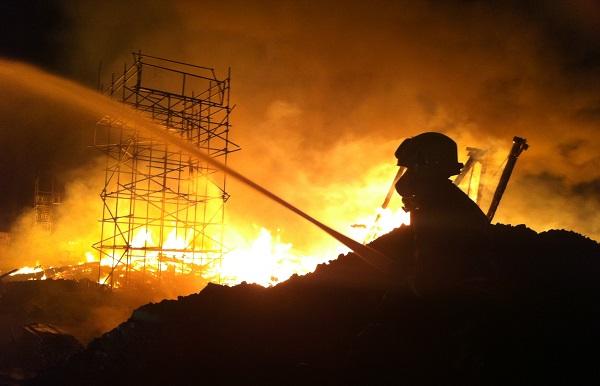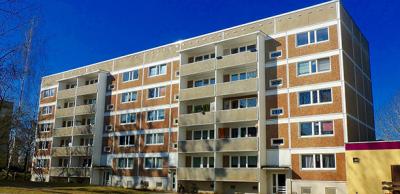Free guide on fire prevention: 16 steps to fire safety
Fires on building sites cost the construction industry over one million pounds per day, with over two thirds of them started deliberately. All buildings under construction are vulnerable and no construction method or material is immune: brick and stone can crack, flake and disintegrate; concrete can spall explosively; and steel can buckle in severe heat.
Recent fires have highlighted that timber-framed buildings are extremely vulnerable to fire during the construction phase. Such fires can be significant as combustible materials are commonplace and the resultant damage can lead to loss of life, not to mention your business. In many cases, the heat generated from a timber frame fire can spread the fire or cause major damage to surrounding buildings.
To minimise risk, the Structural Timber Association (STA), the Chief Fire Officers Association, and the Timber Frame Working Group developed the SiteSafe Online Notification system, backed by their 16 Steps to Fire Safety guide. It promotes best practice on construction sites, and whilst it is aimed at timber frame developments over 600m2 it is relevant for all timber-frame sites.
The 16 steps to fire safety include:
- The Fire Safety Co-ordinator - Appoint a responsible person to co-ordinate site fire safety
- The Site Fire Safety Plan – Carry out a fire risk assessment, write a site fire safety plan, and review as construction progresses
- Checks, inspections, and tests throughout construction - Record and undertake fire drills, security, and firefighting equipment checks
- Communication and liaison - Inform the fire service and, for large sites, the police that a project is being undertaken
- Fire detection and warning – Adopt an appropriate method of raising the alarm, which may require the use of automatic fire warning devices
- First aid firefighting - Install portable fire extinguishers at appropriate locations and ensure sufficient site staff are trained to use them
- Emergency escape routes - Provide, where possible, a minimum of two clearly marked and accessible escape routes, which comply with the appropriate travel distances for site workmen and visitors
- Build in fire protection along the way - Install the STA guidelines’ vertical fire breaks and where possible design, plan and install fire protection as the building progresses
- Site security against arson - All sites should be enclosed and made secure with appropriate security measures.
- Safe storage of materials (including flammable liquids and LPG) - All sites should have appropriate storage for construction materials
- A ‘no smoking’ site - No smoking within or close to the building
Register to download the 16 Steps to Fire Safety guide for more details on these and other measures you need to put in place to minimise the risk of fire on your construction site.
Did you know that timber-frame buildings need a fire risk assessment during construction? LABC Consult’s fire risk assessment team carries out risk assessments on timber-frame during construction. Email consult@labc.co.uk for a quote or further information, or request a quote via this form.
Sign up to the building bulletin newsletter
Over 48,000 construction professionals have already signed up for the LABC Building Bulletin.
Join them and receive useful tips, practical technical information and industry news by email once every 6 weeks.
Subscribe to the Building Bulletin




Comments
Fire risk assessment
Submitted 7 years 5 months ago
I am about to start construction of a detached timber frame dwelling and need to purchase a fire risk assessment.
Site address 20 coney six eastwittering Po20 8 DL
Please advise if you are able to quote
Many thanks
Richard
Reply
Submitted 7 years 5 months ago
Thanks for leaving your comment. Can you email consult@labc.co.uk with your contact details so that the team can arrange that for you?
Thanks!
Julie, LABC
(No subject)
Submitted 2 years 3 months ago
Add new comment